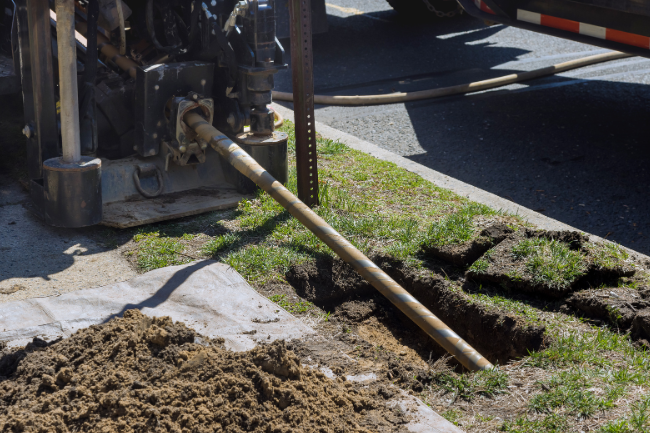Does Homeowners Insurance Cover Sewer Line Damage?
Posted by William Heinselman on
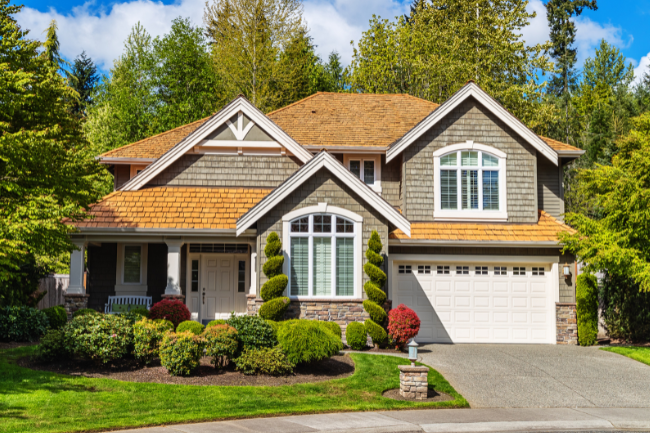
So, you’ve got a broken sewer pipe. You may be wondering how this happened, or what you’re going to have to do to be able to pay for it.
You may ask a question that plumbers hear all the time, usually after a sewer line break has wrought considerable damage to a homeowner’s property:
“Does homeowners insurance cover sewer line damage?”
Homeowner’s insurance is intended to protect you from the high cost of sewer damage and repairs to your home, whether they stem from aging utilities or faulty installation. This applies to almost everything within your home and on your property, including electrical wiring, insulation, and (you guessed it) plumbing.
In the event of pipe failure, fracture, or collapse, it’s very likely that the damages will be covered under your homeowner’s insurance policy. It all comes down to when and where your pipes fail, and what type of break you are dealing with.
In this post, we’ll detail what factors may affect your coverage for damaged pipes, as well as what you can do to have your pipes restored at minimal cost.
Causes of a Broken Sewer Line
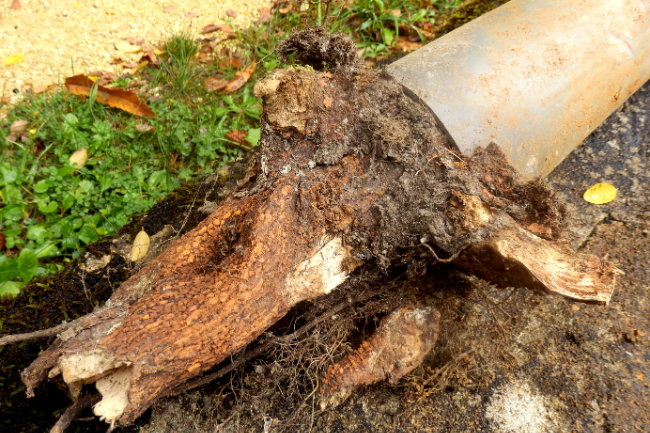
There are many types of sewer lines, all of which are subjected to different forms of wastewater. Tub waste lines carry soap and hair, which can cause clogs over time, while kitchen sinks can be damaged by grease, oil, and food waste. Homeowners should always be on the lookout for telltale signs of a sewer line break: strange noises, frequent stoppages, or bad smells to name a few. When it comes to plumbing, it’s always best to have a professional take a look at anything out of the ordinary as even minor problems could signal more serious issues that the homeowner can’t see.
A sewer line can break for a number of reasons, including:
- Rust
- Pressure
- Water content
- Tree roots can grow into and puncture pipes
- Misusing the garbage disposal
- Mud or yard waste could seep through breaks or poorly fitted connections
- The temperature of the ground may cause a pipe to crack, expand, shrink, or even collapse
Understanding Your Homeowners Insurance Coverage
Broken sewer line insurance depends on two things: the location of the break and the specifics of the homeowner's insurance policy. The sewer insurance company will want to know the precise location of the break, especially for underground pipes that connect to the neighborhood line. It may be covered if the break is located within the perimeter of the home’s foundation or if it is due to poor workmanship. The claims adjuster will also want to know the age and condition of the pipe before determining whether or not coverage applies.
When you file a claim for coverage, claims adjusters will take all things into account about the affected pipes in your home. This is how adjusters determine whether damage was truly accidental, or the result of poor care and aging. Claims adjusters will evaluate all of the following:
- The estimated age of your pipes, and any regular maintenance
- Indicators of pipe aging (corrosion, rust), particularly if they may have played a role in pipe failure
- Pipe location; particularly, the location of damage
- Damage caused by previous repairs or poor care
- General weathering
Claims adjusters will try to find ways you could have prevented the sewer line break with regular care, and use these justifications to deny your insurance claim. If you regularly maintain your plumbing and are faced with pipe and sewer damage due to non-negligent factors, you’ll likely receive full sewer insurance coverage for your repairs.
The Time of the Sewer Line Break
Damaged sewer pipes can be particularly harmful to homes because:
- They’re often difficult to detect.
- Wastewater carries contaminants that can accelerate damage to the structure.
- Wastewater can spread harmful bacteria.
So, when having to deal with this pungent hazard to health and home, many homeowners wonder if their homeowner’s insurance will cover their sewer damage.
Generally, damage to your home’s pipes is more likely to be covered by homeowner’s insurance if they are sudden, and not arguably linked to negligence. If a water line under your home is compromised by an earthquake, fire, or other environmental factor, there is little you could have done to prevent the damage; thus, damages and repairs will likely be covered by homeowner’s insurance.
However, if your pipes have finally given out after years of use, wear-and-tear, or poor general maintenance, there’s a much smaller chance your coverage or claim will be approved. Homeowner’s insurance covers non-negligent, accidental damages; not pipe degradation due to old age or poor care.
The Location of the Sewer Line Break
Beyond pipe age or negligence, the physical location of your pipe (and the sewer damage) will also affect whether your sewer insurance will cover it. If pipe breaks occur directly under the foundation of your home, you can breathe a slight sigh of relief, as these are generally covered by homeowner’s insurance policies.
However, the same cannot be said for municipal systems (the neighborhood sewer grid), and pipes connecting to municipal sewer lines that may be outside of your property. If a pipe is broken or fractured beyond your home’s foundation, yet still affects your plumbing, you’ll have a harder time receiving full coverage; in these cases, it is more difficult to justify that the pipe is on your property, and thus covered by homeowner’s insurance.
Just like home pipes and damages, not all homeowner’s insurance policies are the same. Before you file an insurance claim to receive coverage for pipe repairs, go over your policy to learn how broadly you are covered for pipe damages. What is covered under one policy may not be covered under another.
Factors that Will Affect your Sewer Line Coverage
There are many different factors that can influence whether or not a specific sewer line break event will or will not be covered under your homeowner’s insurance policy.
Your Insurance Company
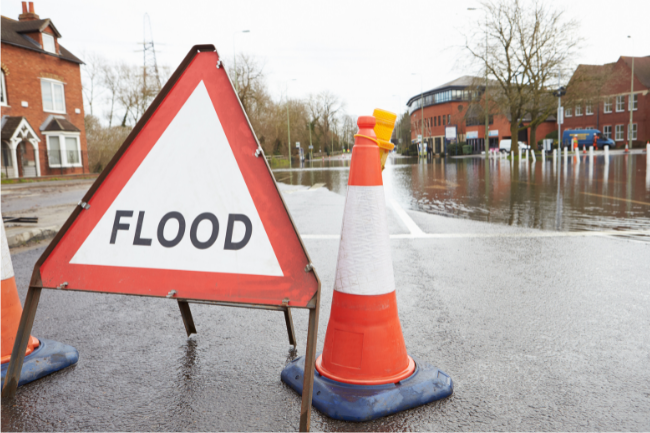
There are many different companies out there that offer homeowner’s insurance to Californians. While some basic forms of coverage are required, such as coverage for the dwelling, there may be exceptions for specific events depending on your insurer, including:
- Earthquakes
- Floods
- Mold
- Wear and Tear
- Acts of God
Additional Purchased Coverage
For many sewer line insurance policies, it is possible to opt for additional coverage such as flood insurance or sewer and drain backup coverage which specifically addresses flooding events and damage from sewer/drain failures. The extra coverage is meant to be an additional security net if you’re in need of a higher liability. Be sure to do serious research on your home and the area that you live in so that you can get the extra coverage that’s most relevant to you.
Your Deductible
Pretty much every insurance plan ever has a set amount of money that the damage to your home has to cost before your insurance policy will start footing the bill. If your damages are below this threshold, then the insurer won’t cover the damage.
The Cause of the Broken Pipe
The cause of the broken pipe plays a major role in determining whether or not the repairs will be covered. As mentioned earlier, wear and tear isn’t typically covered by homeowner’s insurance. So, if a pipe breaks because of a lack of maintenance, then your sewer insurance won’t cover it. The same goes for breaks caused by earthquakes/earth movement—unless you have that specific bit of coverage (which is a good idea in California). Events that might be covered would include damage caused by faulty workmanship or damage from an accident or an act of vandalism.
If your homeowner’s insurance covers the replacement/repair of the pipe itself, it may also cover the cost of some of the damages to the structure and personal property. Once again, the specific coverage you have will heavily influence this.
What Your Homeowner’s Insurance Will Cover
Typically, homeowner’s insurance will cover sewer pipe breaks (and damage to other major plumbing lines) in full, given that the damage occurred suddenly due to extraneous circumstances, and not in any way related to negligence. This applies to damages due to earthquakes or tremors, sudden intrusion by plants, or faulty installation.
In the event of a sewer line break, claims adjusters will evaluate a number of factors to determine the cause of damage (and how or if it relates to homeowner negligence). This includes:
- Ongoing weathering conditions
- Indications of poor maintenance
- Corrosion and natural rust over time
- Sewer pipe age and location on your property
- What point in your pipe that damage occurs
For example, if you’ve recently had your home’s sewer lines replaced or repaired, and face damages related to this work due to an installation error, homeowner’s insurance will usually cover the ensuing repair costs; in these cases, you’re covered because there was nothing you could have done to prevent the breakage.
This also applies to sewer damage caused by sudden ground or environmental activity, including storms and flooding. The key takeaway for homeowner’s insurance and your damaged pipe is that, if the break was completely out of your control, you’ll typically be covered. If, however, your sewer pipes have begun to fail due to old age, poor ongoing maintenance or any other factor that could be considered a form of homeowner negligence, it’s much less likely that you’ll receive coverage.
Things Not Protected Under Homeowner’s Insurance
Whether your broken or failing sewer pipe is covered under homeowner’s insurance is almost entirely dependent on what claims adjusters determine to be the cause of the problem. Adjusters will look for any indicators they can find on the party responsible for the damage. If it’s determined that poor homeowner care is directly linked with the break, it becomes far less likely that you’ll receive full coverage as part of your homeowner’s insurance.
Sewer lines transport water waste away from all fixtures in your home, from your garbage disposal to your shower drain; excessive materials or chemical products (basically, anything that shouldn’t be sent through your sewer line) resulting in sewer damage would put the fault on your shoulders, and thus the damage would not be covered by homeowner’s insurance.
Quick Tips for Long-Term Sewer Care
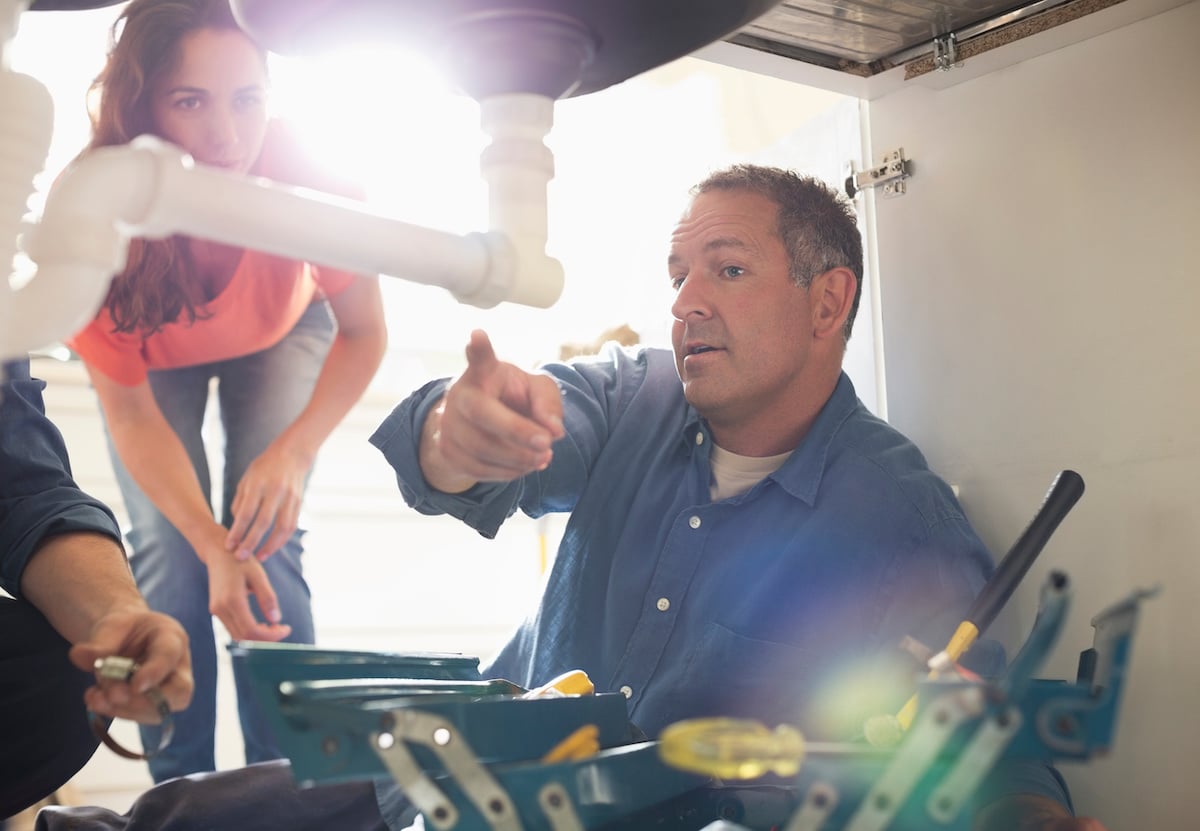
To help you out in the future, we’ve compiled a list of helpful tips you should keep in mind to get the most mileage out of your home sewer line and avoid sewer damage and liability if the worst comes to worst.
- Stay proactive with preventative, not reactive maintenance
- Take note of any sewer line irregularities, including odors, strange sounds, or surface moisture
- Get a detailed, full copy of your homeowner’s insurance policy, and keep it on hand when you notice repeat plumbing issues
- Have a professional plumbing technician inspect your plumbing at least once annually, and consider a video sewer inspection to catch damages early on
- Call a plumber right away when you notice any problems with your pipe and sewer lines; putting off the problem will often only make matters worse
Protecting Yourself Against Sewer Pipe Damage
Regardless of whether your insurance policy covers a sewer line break, you’ll want to fix the problem as quickly as possible to avoid any additional damage. For fast and effective sewer damage and pipe repair and replacement, you should consider a solution that makes use of the latest in trenchless plumbing technology.
While traditional repair methods can take several days to complete and incur additional expenses in the form of landscaping or pavement repair, trenchless replacement methods can be carried out with minimal disruption at a reasonable cost. Rather than scheduling several days of work after an initial assessment, trenchless solutions can typically be carried out on the same day to get your household back to normal as quickly as possible.
Contact Us Today
We understand that aging and overburdened sewer lines break all the time. We also know that accidents can happen. Here at Express Sewer & Drain, we can help you with all of your sewer, drain, and plumbing needs. We are fully prepared to perform maintenance or repair on your sewer lines as needed, including deploying the very latest in trenchless technology solutions.
Our services are effective and efficient, and our experienced plumbers are always ready to tackle any plumbing issue. For any and all questions regarding plumbing and sewer lines, don't hesitate to contact us today.

Topics: Trenchless Technology, Pipe Leaks and Repair, Home Plumbing
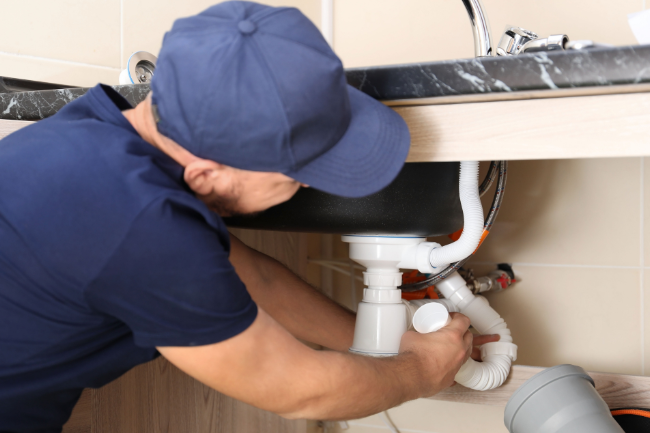
![Repiping Your Sacramento Home [6 Steps]](https://www.expresssewer.com/hs-fs/hubfs/plumbing%20tools%20and%20blueprints.jpeg?width=550)
